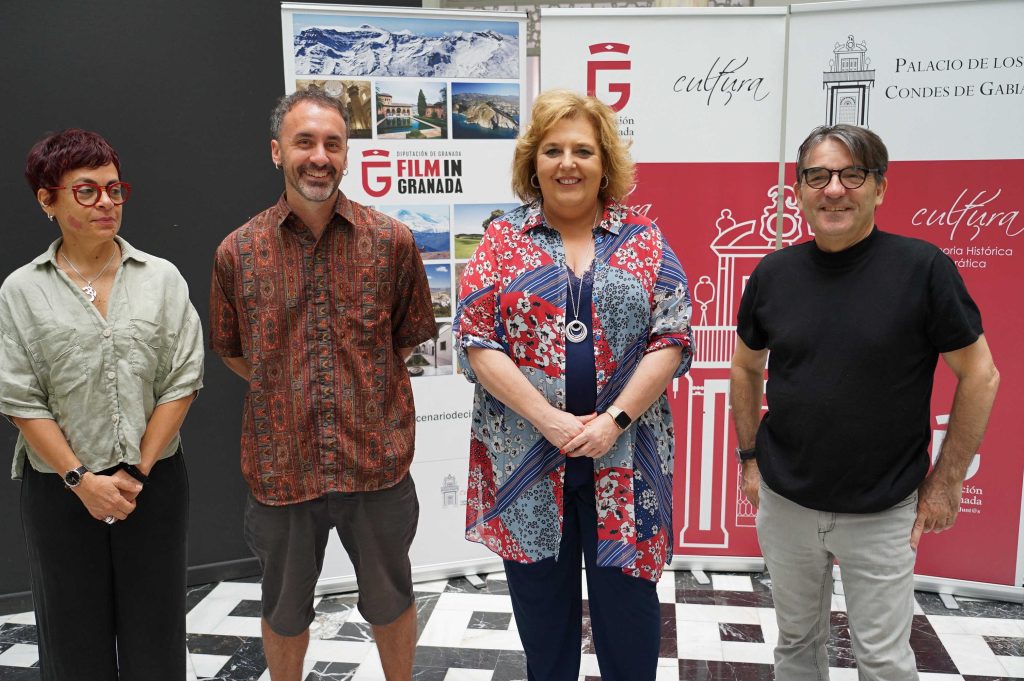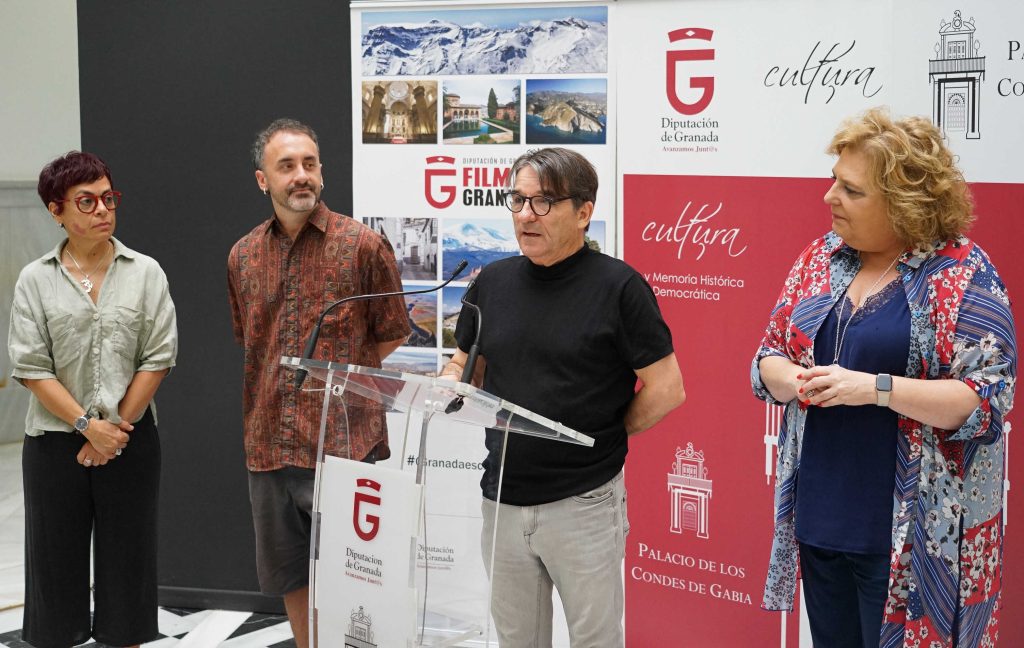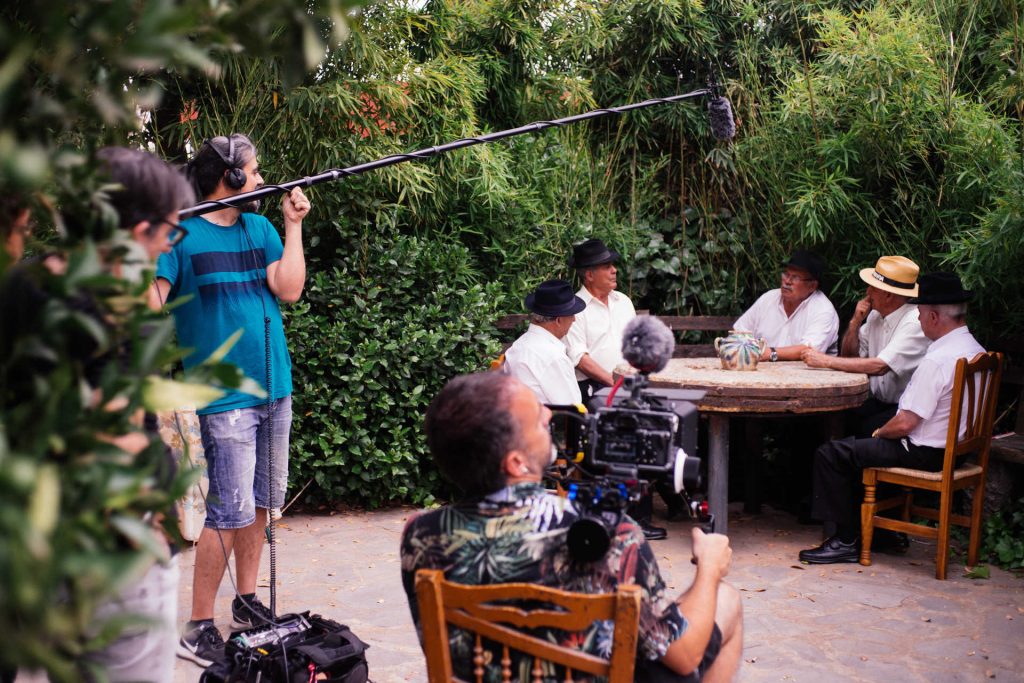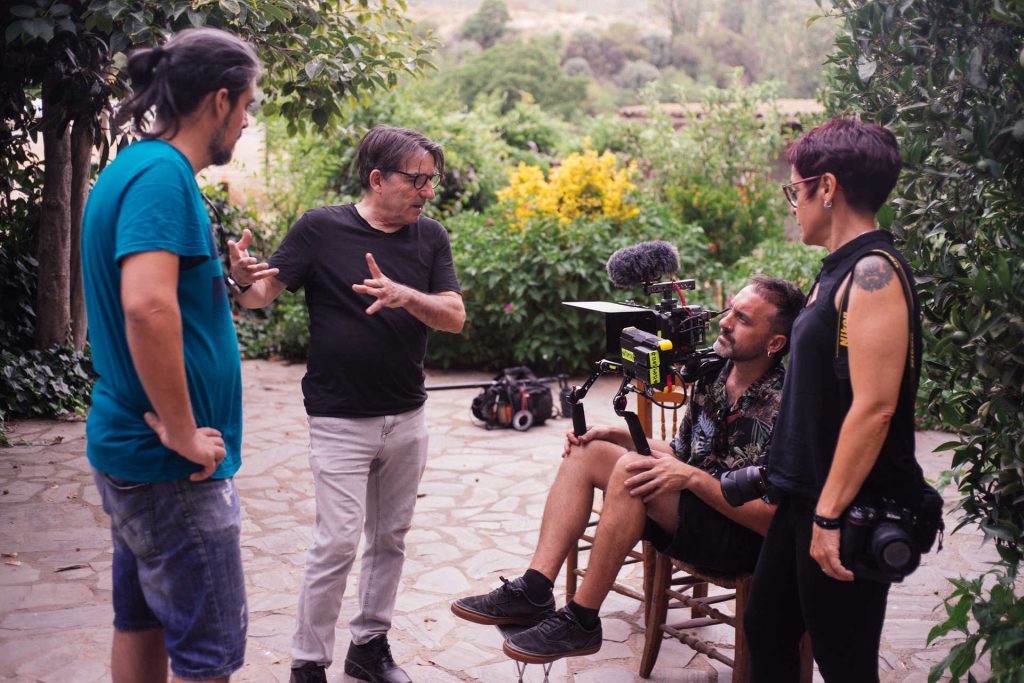The documentary feature film, produced by the Granada-based company Ínsula Sur, has the collaboration of “Film in Granada”
The feature-length documentary “Y punto”, produced by Granada-based compañy Ínsula Sur and directed by journalist Javier Tolentino, narrates the history and different expressions of popular poetry between Spain and Latin America. The project has begun to take its first steps this weekend in the province of Granada, with the shooting of several preparatory scenes in the Alpujarra, which will be one of the main locations, along with the Basque Country, Navarra, Canary Islands and Cuba.

The first vice-president and provincial deputy for Culture and Historical Memory, Fátima Gómez, has defined the project as “a fantastic journey through traditional music and oral poetry between Spain and Latin America, which will include the “versolaris” of the Basque Country and Navarra, the Canary “point”, the Cuban “repentismo” and of course, our beloved “trovos” of the Alpujarra“.
Gómez recalled that “two years ago, the Alpujarra and its people were already the subject of a Jesus Calleja´s TV show and we remain convinced that this region is one of the territories that has a greater potential as a film location, because its beautiful landscapes and unique architecture are yet to be discovered as sets for film and audiovisual productions”.

For his part, director Javier Tolentino pointed out the close ties between the project and Granada, because “the film was born here, in this same Condes de Gabia building, during the last edition of the Granada Film Festival, where I attended the screening of my documentary “A blues for Teheran” and where a long conversation with photographer Carmen Rivero and producer Javier Morales took place”.
Tolentino pointed out that “the objective of the documentary is to investigate popular poetry, to analyze the influence of minstrels and mesters in each territory, and how each place makes them their own through their own culture, in the Basque Country with the Basque culture, in Cuba with the African culture, or in the Alpujarra, where the “trovo” is a very important culture, and where there are still some conscientious teachers, who have brought popular poetry into the classrooms and who are making 8-year-old children authentic “troveros”.

The Granadian producer Javier Morales, from Ínsula Sur, pointed out that it is “a relatively young project, and after a year of documentation and research, it has been selected by the DocsValencia laboratory and by the Guadalajara International Film Festival (Mexico) and has started last weekend in Cádiar, in the Alpujarra of Granada, with a first stage of research and pre-shooting”.
For Cuban photographer Carmen Rivero, who narrates the documentary, “the project is important on a personal level, because I come from a tradition of “repentistas”, of “troveros”, my father was a “decimista” and my mother sang my father’s “décimas”, and my role in this film will be to photographically document the whole journey and at the end mount an exhibition with all those images”.

The project is produced by the Granada-based company Ínsula Sur, with the collaboration of Arquetipo Comunicación (Navarra), Siroco Factory (Canary Islands), Mirokutana (Basque Country) and I4Films (Cuba). Filming will continue in the Canary Islands in October, again in Granada and Havana in November-December and finally in the Basque Country in early 2023.
Javier Tolentino, director and journalist
Journalist Javier Tolentino is known (and recognized) for his long radio career on the spanish public broadcaster RNE Radio 3, at the helm of “El séptimo vicio” (1999-2021), the country’s most awarded film program.
In recent years, he is also known for his incursions into filmmaking, as director of several documentaries. One of them, “A blues for Teherán”, was nominated last year for the Goya, Gaudí and Alma Awards.
Tolentino received in 2021 the Honorary Award at the inauguration of the 27th Granada Film Festival and was part of its jury, together with Jose Luis Rebordinos, director of the San Sebastian Film Festival and the Granada singer Soleá Morente.



